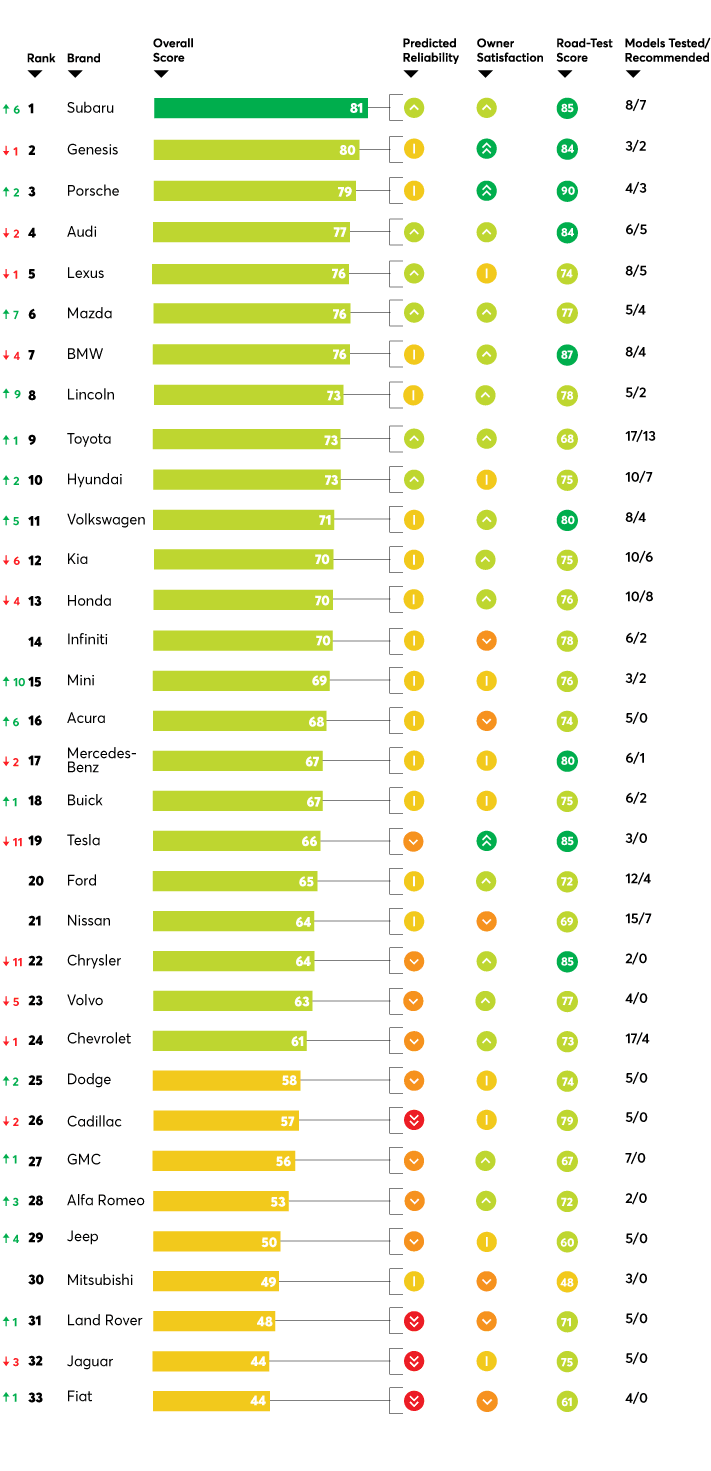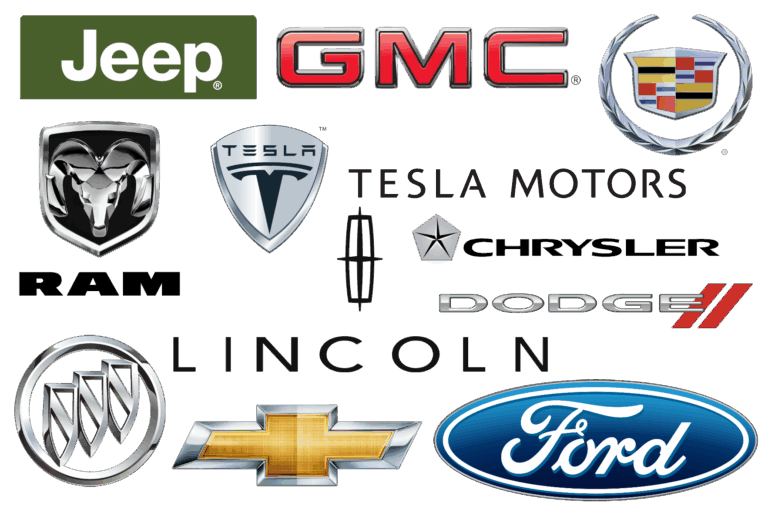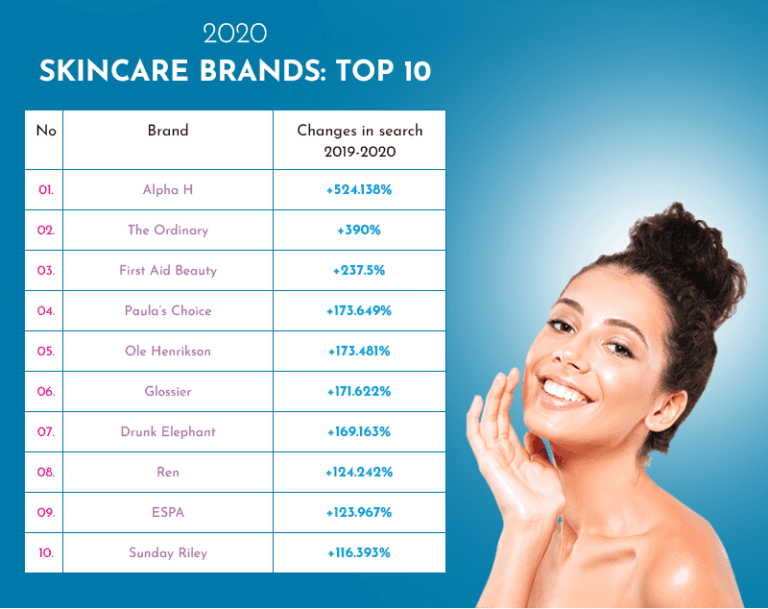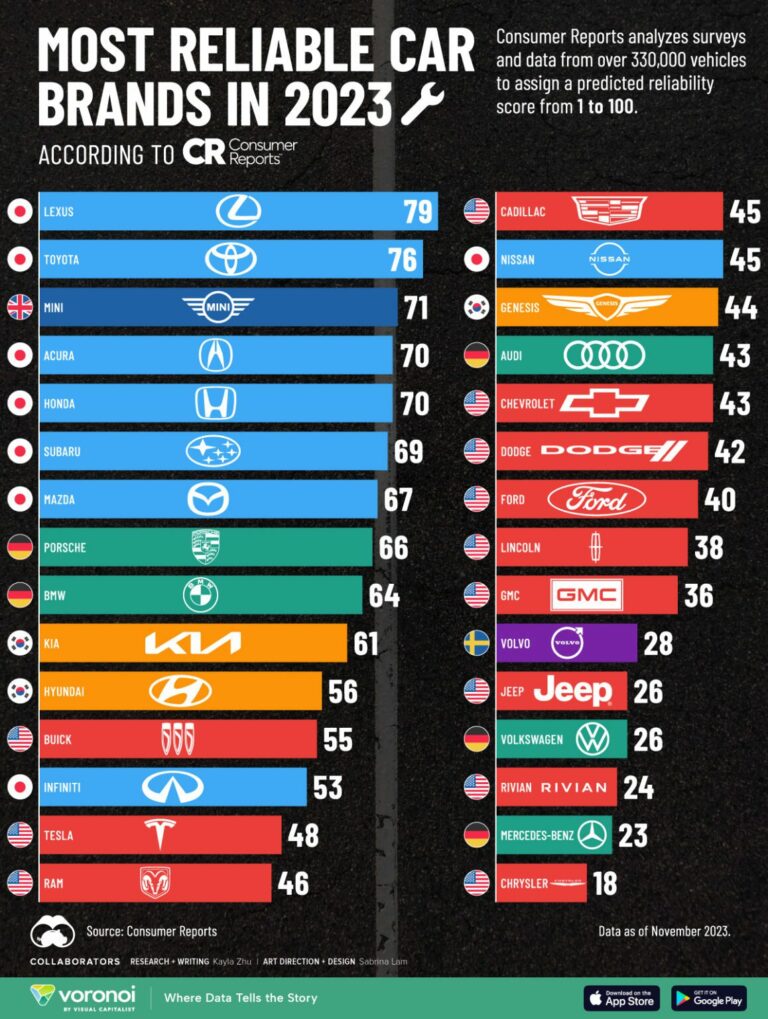Best Car Brands 2019: A Comprehensive Guide to Automotive Excellence
Best Car Brands 2019: A Comprehensive Guide to Automotive Excellence cars.truckstrend.com
The year 2019 represented a fascinating snapshot in the automotive world, a period of significant transition and innovation. While the industry was still heavily reliant on internal combustion engines, the nascent but rapidly growing electric vehicle market, advancements in autonomous driving technology, and a pronounced shift towards SUVs and crossovers were already reshaping consumer preferences and manufacturer strategies. Understanding the "best car brands 2019" isn’t just about looking back; it’s about appreciating the benchmarks set, the trends emerging, and the enduring qualities that define automotive excellence. For consumers, knowing which brands excelled in various categories in 2019 offered invaluable guidance for making informed purchasing decisions, ensuring reliability, value, and satisfaction for years to come.
This comprehensive guide will delve into what made certain car brands stand out in 2019, examining the criteria for excellence, highlighting the top performers across different segments, and providing practical advice for anyone interested in the automotive landscape of that pivotal year.
Best Car Brands 2019: A Comprehensive Guide to Automotive Excellence
Methodology for Determining "Best" in 2019
Defining the "best" car brands is a complex endeavor, as "best" can mean different things to different people. However, in 2019, several reputable organizations and publications employed rigorous methodologies to assess and rank automotive brands. These evaluations typically considered a multifaceted approach, blending objective data with subjective consumer experiences. Key metrics and criteria included:
- Reliability: Perhaps the most crucial factor, often gauged by organizations like J.D. Power (through its Vehicle Dependability Study and Initial Quality Study) and Consumer Reports. High reliability scores indicated fewer reported problems, leading to lower ownership costs and greater peace of mind for owners.
- Owner Satisfaction: Beyond just reliability, how happy were owners with their vehicles? This included aspects like driving experience, comfort, features, and overall value.
- Safety: Crash test ratings from independent bodies such as the Insurance Institute for Highway Safety (IIHS) and the National Highway Traffic Safety Administration (NHTSA) were paramount. Brands that consistently achieved top safety picks were highly regarded.
- Performance: This encompassed engine power, handling, braking, and overall driving dynamics, catering to those who prioritized an engaging ride.
- Design and Build Quality: The aesthetic appeal, quality of materials, fit-and-finish, and attention to detail both inside and out.
- Technology and Innovation: The integration of advanced infotainment systems, driver-assistance features (ADAS), connectivity options, and advancements in powertrain technology (e.g., hybrid, electric).
- Resale Value: A significant financial consideration for many buyers, indicating how well a vehicle retained its value over time. Brands with strong resale values offered better long-term financial sense.
- Fuel Efficiency: An increasingly important factor as consumers sought to reduce running costs and environmental impact.
By weighing these factors, industry experts and consumer advocates provided a holistic view of brand performance, allowing consumers to make choices aligned with their specific priorities.
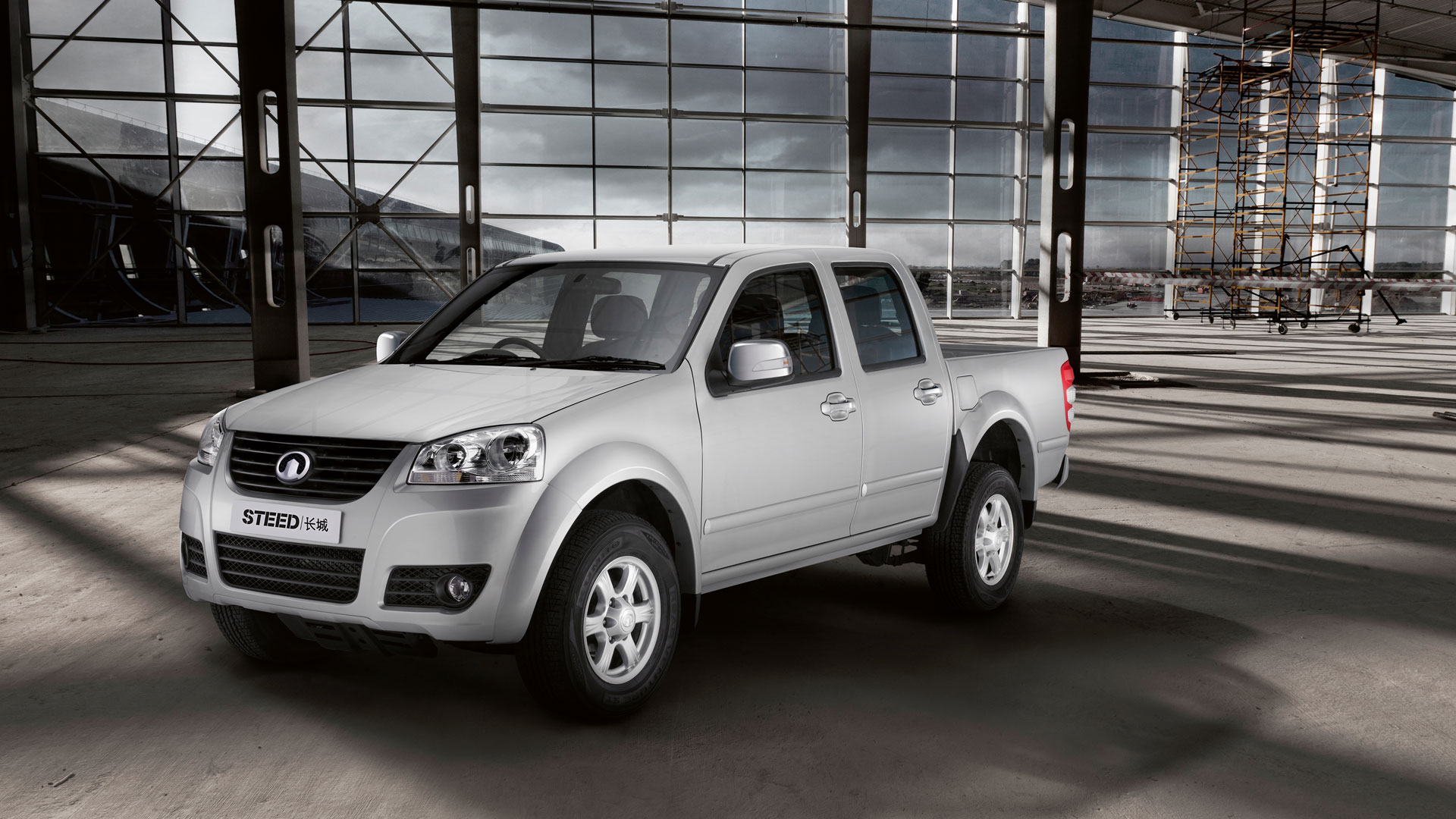
Top Contenders: A Deep Dive into the Leading Brands of 2019
The automotive market in 2019 was diverse, with brands excelling in various niches. Here’s a look at some of the top contenders across different segments:
1. Reliability & Value Champions: The Dependable Pillars
For many consumers, peace of mind and long-term savings are paramount. In 2019, several brands consistently topped the charts for reliability, low cost of ownership, and strong resale value.
- Toyota: A perennial leader, Toyota continued its legacy of bulletproof reliability, excellent fuel economy, and strong resale values across its diverse lineup, from the Corolla and Camry to the RAV4 and Highlander. Their commitment to hybrid technology also set them apart.
- Honda: Close behind Toyota, Honda offered a similar blend of reliability, refined driving dynamics, and practical design. Models like the Civic, Accord, CR-V, and Pilot were lauded for their well-engineered platforms and consumer-friendly features.
- Subaru: Known for its standard all-wheel drive, robust safety ratings (especially with EyeSight driver-assist technology), and adventurous spirit, Subaru carved out a loyal following. The Forester, Outback, and Crosstrek were particularly popular for their go-anywhere capability and strong resale.
- Mazda: While not always as prominent in sales as Toyota or Honda, Mazda garnered critical acclaim in 2019 for its engaging driving dynamics, premium-feeling interiors, and stylish designs. The Mazda3, CX-5, and MX-5 Miata offered a more upscale and sporty experience for their price point.

2. Luxury & Performance Powerhouses: The Pinnacle of Refinement
For buyers seeking prestige, advanced technology, superior comfort, and exhilarating performance, luxury brands were the go-to choice.
- Lexus: Toyota’s luxury arm consistently ranked highest in reliability among luxury brands. In 2019, Lexus continued to impress with serene cabins, impeccable build quality, and a focus on long-term dependability, making it a top choice for luxury buyers who prioritize peace of mind.
- Porsche: Synonymous with high-performance sports cars and now equally impressive SUVs, Porsche delivered unparalleled driving excitement and engineering precision. The 911, Boxster, Cayman, Macan, and Cayenne offered a blend of exhilarating performance and surprisingly usable everyday luxury.
- Audi: Known for its sophisticated design, cutting-edge technology, and standard Quattro all-wheel drive, Audi offered a compelling blend of luxury and sportiness. Their virtual cockpit and advanced infotainment systems were particularly standout features in 2019.
- BMW: The "Ultimate Driving Machine" continued to deliver engaging driving dynamics across its sedan and SUV lineups. In 2019, BMW focused on blending performance with luxury and technology, with models like the 3 Series, 5 Series, and X5 remaining popular choices.
- Mercedes-Benz: Offering opulent interiors, supreme comfort, and advanced safety and infotainment technologies, Mercedes-Benz remained a benchmark for luxury and prestige. Their diverse lineup, from the C-Class to the S-Class, catered to a wide range of luxury tastes.
- Genesis: Hyundai’s relatively new luxury brand made significant waves in 2019, offering compelling value, impressive standard features, and a lengthy warranty. Models like the G70 sport sedan surprised many with their performance and refinement, challenging established luxury players.
3. Innovation & Technology Leaders: Shaping the Future
Some brands pushed the boundaries of automotive technology, particularly in electric propulsion and advanced safety.
- Tesla: The undisputed leader in electric vehicles, Tesla continued to disrupt the industry with its long-range EVs, Supercharger network, and over-the-air software updates. The Model 3, in particular, was rapidly gaining market share and demonstrating the viability of mainstream EVs.
- Volvo: While often considered a luxury brand, Volvo’s unwavering commitment to safety innovation and its rapid adoption of electrification (with many models offering plug-in hybrid options) positioned it as a leader in forward-thinking automotive design. Their intuitive Sensus infotainment system also garnered praise.
- Hyundai/Kia: These South Korean brands made incredible strides in quality, design, and technology in 2019. They offered competitive vehicles across nearly every segment, often with class-leading warranties and a surprising amount of standard features, including impressive infotainment and safety tech. Their early foray into mass-market EVs (like the Kona Electric and Kia Niro EV) also showed foresight.
4. American Mainstays: Strength, Utility, and Heritage
American brands continued to dominate segments like trucks and large SUVs, while also improving their passenger car offerings.
- Ford: A titan in trucks with the F-150, Ford also made strides in its SUV lineup (Edge, Explorer) and began to shift away from sedans. Their Sync infotainment system was evolving, and the brand focused on utility and connectivity.
- Chevrolet: General Motors’ flagship brand offered a wide range of vehicles, from the popular Silverado truck to the Equinox SUV and Malibu sedan. Chevrolet emphasized connectivity (with OnStar) and strong performance in its V8-powered models.
- Ram: Spun off as a standalone brand, Ram’s 1500 pickup was lauded in 2019 for its luxurious interior, comfortable ride, and innovative features, challenging the F-150 for truck supremacy.
- Jeep: A lifestyle brand, Jeep continued its dominance in off-road capability and rugged design. The Wrangler, Grand Cherokee, and Cherokee remained iconic for their adventurous spirit and strong resale value.
Key Factors for Consumers When Choosing a Brand in 2019
For consumers navigating the vast automotive market in 2019, understanding their personal priorities was crucial.
- Budget: This encompasses not just the purchase price, but also insurance costs, fuel efficiency, maintenance expenses, and potential depreciation. A brand known for high reliability often translates to lower long-term costs.
- Lifestyle Needs: A single commuter, a growing family, an off-road adventurer, or someone needing significant cargo space would gravitate towards different brands and vehicle types.
- Priorities: Is safety the absolute top priority? Or is it performance, cutting-edge technology, environmental impact, or sheer luxury? Different brands excel in different areas.
- Resale Value: For those who plan to sell their vehicle after a few years, choosing a brand with strong resale value can significantly reduce the overall cost of ownership.
- Dealer Experience and Service: The quality of local dealerships, their service departments, and the availability of parts can greatly influence the ownership experience.
Practical Advice and Actionable Insights for Car Buying in 2019 (Still Relevant Today)
Even though it’s 2019 in context, the advice for smart car buying remains timeless:
- Do Your Homework: Research thoroughly. Read reviews from multiple sources (Consumer Reports, Edmunds, Kelley Blue Book, J.D. Power). Look at long-term reliability data specific to models you’re considering.
- Define Your Needs: Be clear about what you need from a car. How many passengers? How much cargo? What’s your daily commute like? Do you need AWD?
- Set a Realistic Budget: Don’t just consider the monthly payment. Factor in insurance, fuel, maintenance, and potential depreciation.
- Test Drive, Test Drive, Test Drive: Never buy a car without a comprehensive test drive. Pay attention to comfort, visibility, handling, acceleration, braking, and how easily you can use the infotainment system.
- Consider Total Cost of Ownership: A cheaper car upfront might be more expensive to own over time due to poor fuel economy, high maintenance costs, or rapid depreciation.
- Negotiate Smartly: Be prepared to negotiate the price, whether it’s a new or used vehicle. Knowledge of market values is your best tool.
Challenges and Evolving Trends in 2019
2019 was a year of dynamic shifts in the automotive industry:
- SUV/Crossover Dominance: The market continued its inexorable shift away from sedans towards SUVs and crossovers, driven by consumer demand for higher driving positions, more versatile cargo space, and perceived safety.
- Electrification on the Horizon: While still a niche, the buzz around Electric Vehicles (EVs) and Hybrids intensified. Brands were investing heavily, and consumers were starting to see more viable options beyond Tesla.
- Advanced Driver-Assistance Systems (ADAS): Features like adaptive cruise control, lane-keeping assist, automatic emergency braking, and blind-spot monitoring became more common, laying the groundwork for future autonomous driving.
- Connectivity and Infotainment: Seamless smartphone integration (Apple CarPlay, Android Auto), larger touchscreens, and in-car Wi-Fi became standard expectations.
- Ride-Sharing and Mobility Services: The rise of services like Uber and Lyft began to influence car ownership patterns, particularly in urban areas, prompting some brands to explore new mobility solutions.
Conclusion: A Legacy of Excellence and Adaptation
The "Best Car Brands 2019" represented a blend of established excellence and forward-thinking innovation. Brands like Toyota and Honda continued to dominate with their unwavering reliability and value, while luxury stalwarts such as Mercedes-Benz, BMW, and Audi refined their offerings with cutting-edge technology and unparalleled comfort. Emerging players like Genesis proved that value and luxury could coexist, and Tesla fundamentally reshaped the conversation around electric vehicles.
Ultimately, the "best" brand for any individual in 2019, as it is today, depended on a unique blend of personal needs, budget, and priorities. However, the consistent performance of these highlighted brands across critical metrics like reliability, safety, and customer satisfaction solidified their positions as industry leaders, leaving a lasting legacy of quality and setting the stage for the rapid evolution the automotive world continues to experience. The choices made in 2019 reflected not just the best vehicles available, but also the direction the industry was headed.
Table: Best Car Brands 2019 – Key Attributes and Typical Price Ranges
| Brand | Key Attributes (2019) | Typical Model Price Range (USD) * | Value Proposition / Target Audience |
|---|---|---|---|
| Toyota | Unmatched reliability, strong resale value, fuel efficiency, broad lineup | $20,000 – $55,000 | Dependability, low ownership cost, practical, broad appeal |
| Honda | Reliability, refined driving dynamics, practical design, strong resale | $20,000 – $45,000 | Balanced performance, family-friendly, value-driven |
| Subaru | Standard AWD, top-tier safety (EyeSight), rugged capability, loyal following | $25,000 – $45,000 | Safety-conscious, outdoor enthusiasts, all-weather confidence |
| Mazda | Engaging driving, premium feel interiors, stylish design, good value | $20,000 – $40,000 | Driving enthusiasts, design-focused buyers, affordable luxury feel |
| Lexus | Top luxury reliability, quiet cabins, strong service, plush comfort | $35,000 – $90,000 | Luxury seekers prioritizing reliability, comfort, and peace of mind |
| Porsche | High performance, precision engineering, prestige, driver engagement | $55,000 – $180,000+ | Performance enthusiasts, luxury sports car buyers, exclusivity |
| Audi | Sophisticated design, advanced technology (Virtual Cockpit), Quattro AWD | $35,000 – $100,000+ | Tech-savvy luxury buyers, modern aesthetics, all-weather capability |
| BMW | "Ultimate Driving Machine," strong performance, luxury, driving dynamics | $35,000 – $150,000+ | Performance-oriented luxury buyers, engaging driving experience |
| Mercedes-Benz | Opulent interiors, supreme comfort, advanced tech, status symbol | $35,000 – $180,000+ | Ultimate luxury, comfort, prestige, cutting-edge features |
| Volvo | Unrivaled safety focus, Scandinavian design, comfort, emerging electrification | $35,000 – $70,000 | Safety-first families, design-conscious buyers, environmental awareness |
| Genesis | Emerging luxury, impressive value, strong warranty, refined performance | $35,000 – $60,000 | Value-conscious luxury buyers, early adopters, premium experience |
| Hyundai/Kia | Rapid quality improvement, strong value, segment-leading warranty, tech-rich | $18,000 – $45,000 | Budget-conscious, value-driven, tech-interested, long-term assurance |
| Tesla | Electric vehicle innovation, long range, performance, unique tech, Supercharger | $40,000 – $100,000+ | Early adopters, eco-conscious, tech enthusiasts, performance-oriented EV buyers |
Note: Typical Model Price Ranges are approximate USD figures for new passenger cars and SUVs in 2019. High-performance, specialized, or ultra-luxury models may exceed these ranges significantly. Prices vary widely based on trim, options, and market conditions.
Frequently Asked Questions (FAQ) about Best Car Brands 2019
Q1: How were the "best" car brands of 2019 determined?
A1: "Best" was determined by a combination of objective metrics and subjective evaluations from reputable organizations like J.D. Power, Consumer Reports, IIHS, and NHTSA. Key factors included reliability, owner satisfaction, safety ratings, performance, design, technology, fuel efficiency, and resale value.
Q2: Is "best" subjective, or are there objective criteria?
A2: While personal preference always plays a role (making "best" somewhat subjective), the rankings were largely based on objective criteria such as crash test scores, reported problems per 100 vehicles (reliability), fuel economy figures, and verified owner satisfaction data.
Q3: Did electric vehicle brands make the list in 2019?
A3: Yes, Tesla was a significant innovator in 2019, leading the electric vehicle segment with its Model 3 gaining widespread popularity. Other brands like Hyundai/Kia and Volvo were also making strides with their hybrid and EV offerings.
Q4: What was the most important factor when choosing a car brand in 2019?
A4: Reliability consistently ranked as one of the most important factors for consumers, followed closely by safety, fuel efficiency, and overall value (including purchase price and long-term ownership costs).
Q5: Are luxury brands always "better" than mainstream brands?
A5: Not necessarily. While luxury brands often excel in performance, advanced technology, and premium materials, mainstream brands like Toyota and Honda frequently outperform them in terms of long-term reliability and lower overall cost of ownership. "Better" depends on individual priorities and budget.
Q6: How much has the automotive industry changed since 2019?
A6: The industry has continued its rapid transformation since 2019. The shift to SUVs/Crossovers has accelerated, electric vehicles are now a mainstream consideration with many more options, and advanced driver-assistance systems are becoming standard. Connectivity and software-defined vehicles have also seen significant advancements.

